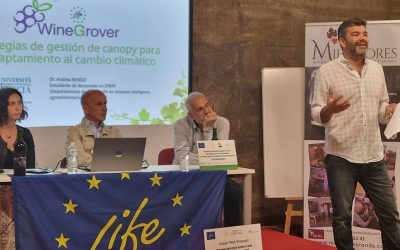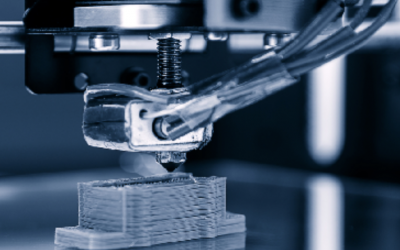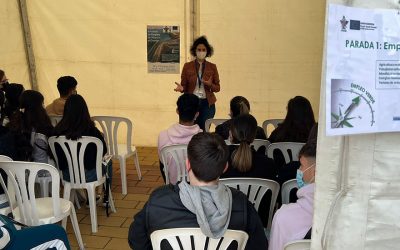New technologies applied to waste management
The amount of waste worldwide will increase 70% in the next 30 years, according to the UN, due to the concentration and increase of population in urban areas, rapid urbanization and economic development.
5 May 2020
In Spain 56.7% of urban solid waste (MSW) is taken to landfills, while 43.3% is recycled or reused. This represents 8.7% less than the average of the EU countries, according to the study Waste Management and Circular Economy of the EAE Business School.
Beyond recycling, Smart Cities are betting on zero waste policies. Implementing ‘zero waste’ policies means moving towards a world in which all materials are used to their full potential and changing the current linear economic model (buy-use-throw away) for a circular economy that allows use and reuse more resource efficient.
Thanks to Big Data, smart sensors and mobile applications, many solutions have been created that could revolutionize the field of waste management. The technology needed to drive this great change already exists, here are some examples:
From waste to resources
From shoes made with banana peeling to wood products with nutshells. Innovation and new technologies are enabling the rapid development of ecodesign, a booming trend in all sectors, from fashion to technology. Products made with the least amount of material possible, highly durable, reusable as well as easily recyclable at the end of their useful life.
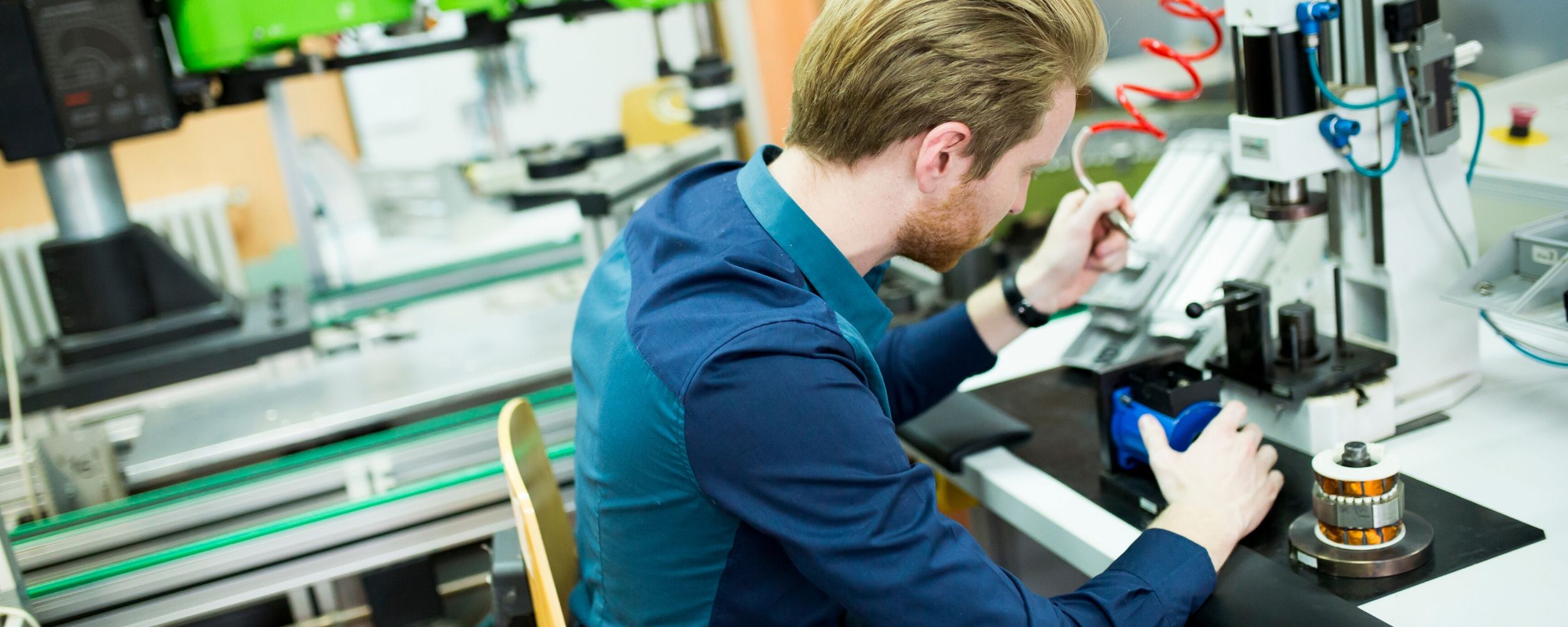
Apps that change consumption habits
There are already several Apps around the world, which allow reducing the waste generated. The model is very simple, instead of throwing food in good condition that would end up in the trash, before it expires, you have to remove it or have to throw it away because it has not been consumed, this app offers these products with great discounts for users buy them in stores or restaurants.
In this way, we transform something that would be a residue in a few hours into a food that can be consumed perfectly.
An example of this is Too good to go: buying surprise food packs.
Internet of things
The application of the Internet of Things (IoT) brings many benefits to smart waste management.
The smart containers have wireless sensors that detect when they are full and send the data to the central for collection, such as the technologies of our associates Sayme Dumpster or Quamtra Smart Waste Management.
This information optimizes collection routes, and generates adapted emptying schedules, in addition to reducing noise pollution and carbon emissions emitted by collection trucks.
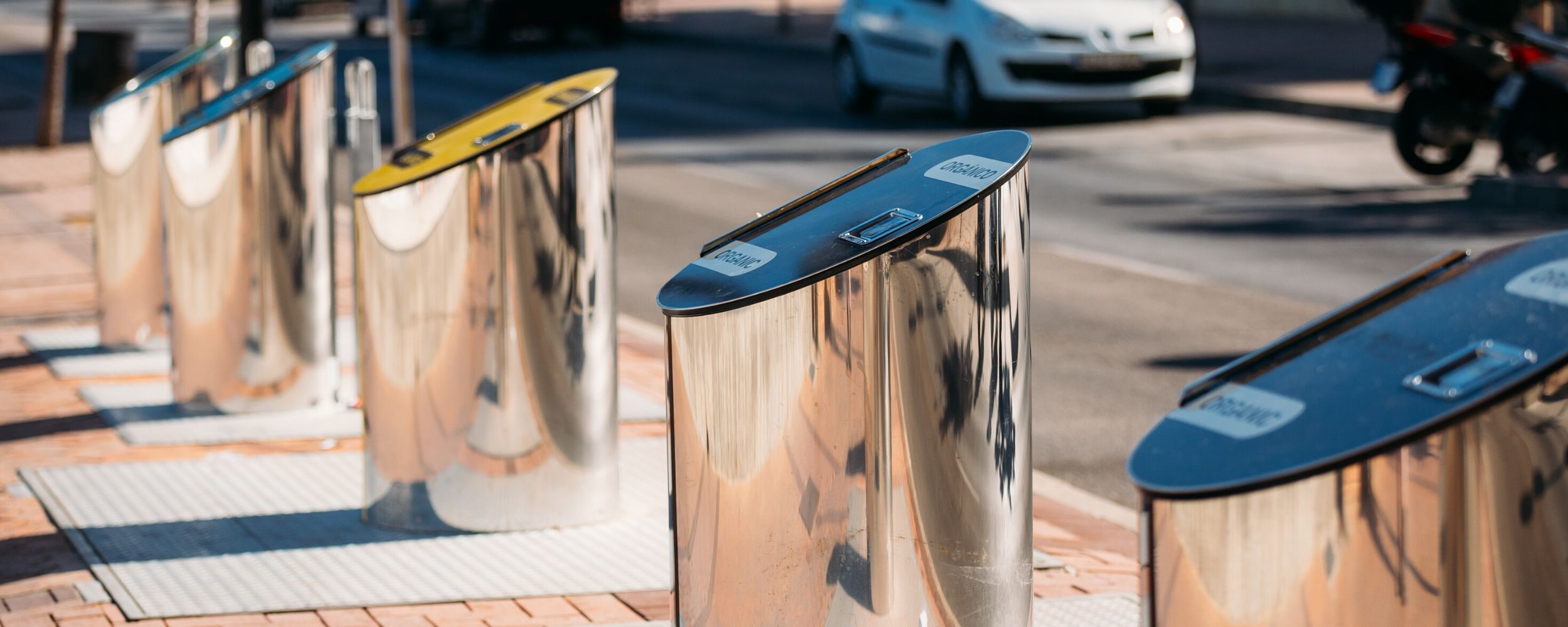
Analysis of data
The large amount of data that is handled through connected devices and sensors allows obtaining accurate and updated information on the management and efficiency of waste collection.
Better planning based on real data results in greater efficiency and increased productivity, reducing logistics and environmental costs.
Thanks to the treatment of these data, it is possible to know in which neighborhoods the awareness campaigns have the most effect and in which others need more information; or you can know which areas have an older population and, therefore, need easily accessible containers.
Another example of data processing for efficient waste management is the IWWA project, which has contributed to the improvement of solid waste management systems in West Africa through an effective network of analysis of the situation of the participating countries and of successful experiences.
Social networks have also become a source of updated information on incidents on public roads. Active listening to networks, as the Gweet app does on twitter, allows incidents to be identified by analyzing keywords and thus solving them quickly, in addition to giving direct responses to citizens.
Robotics in waste selection
Dual artificial intelligence and robotic systems advance day by day to improve the ability to select waste, with two main objectives: to maximize the recovery of materials present in the waste streams, and to ensure adequate quality of the recovered materials that allows their subsequent transformation into secondary raw materials and, consequently, valorize them.
Quality training in waste management, Smartec
From Smart City Cluster, we know that our cities face new environmental, social and technological challenges and we want to collaborate in the training of professionals who lead the development of new urban models.
That is why, from our Smartec training program, we offer training in different key areas such as Responsible and Circular Management of Urban Waste, where some of the topics covered in the article are developed, and also other areas such as Transport and Sustainable Mobility, Smart Building or Smart Tourism.
Smartec is a project that is part of the “EmpleaVerde Program”. The Ministry’s Green Employment Program for the Ecological Transition and Demographic Challenge is an initiative of the Biodiversity Foundation to promote and improve employment, entrepreneurship and the environment, which is co-financed by the European Social Fund (ESF) within the framework of the Operational Program for Employment, Training and Education 2014-2020.
+ Related post
Know the advantages of being associated
Smart City Cluster enhances collaboration among its partners, favoring research, development and innovation in the different solutions and technologies aimed at the development of smart cities.
Smart City Cluster is an alliance of private companies and institutions that work for the development of smart cities.
